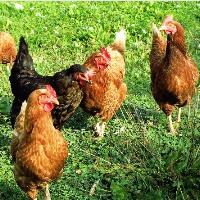(BRUSSELS) – Producers of free range eggs can continue to market their products as such even if their hens have restricted access to open-air runs because of bird flu following changes to EU egg marketing standards.
A 2008 standard allowed egg producers to continue to market their products as free range even if their hens had no open-air access for up to 12 weeks. The latest change, which comes into force on 25 November, will extend this period to 16 weeks.
The European Commission has responded to the concerns of EU hen farmers about the potential economic losses for free range farms. In times of high risk of avian influenza EU-wide veterinary rules require hens to be kept indoors in order reduce the risk of infections from migratory birds, but this is directly at odds with EU rules on free range eggs which state that laying hens must have continuous daytime access to open-air runs.
The marketing standards already allowed eggs to be labelled as free range even if birds were kept indoors as a result of EU-wide measures, but the 12 week derogation was considered too short in the face of the prolonged nature of the influenza outbreak across the EU in 2016. This meant that eggs normally marketed as free range had to be sold as ‘barn eggs’ if the hens were kept indoors for more than 12 weeks, leading to economic losses for farmers.
With the likelihood of further prolonged outbreaks of avian influenza in the future, and following discussions with member state authorities and industry stakeholders, the decision was taken to extended the period from 12 to 16 weeks.
The new rules also clarify that this derogation applies at the level of flocks (rather than regions or farms). This allows farms having introduced new flocks during the restriction period to benefit from the full derogation; eggs from each individual flock on the same farm can be labelled as free-range for the full 16-week period if open air access is restricted, regardless of when the farm came under the restrictions.
There are currently around 390 million hens in the EU, of which around 54 million (14%) are kept in free range systems (14%). Free range eggs are particularly important in the UK (53% of hens kept there), Ireland (40%), Austria (21%), France (18%), Germany (18%) and the Netherlands (15%). In terms of flock size, the UK keeps the biggest share of the EU’s population of free range hens (41%), followed by Germany (17%), France (16%) and the Netherlands (10%).
The avian flu restrictions imposed in 2016/17 had a particularly severe impact in Germany, the Netherlands, the UK, Belgium, France and Ireland.



